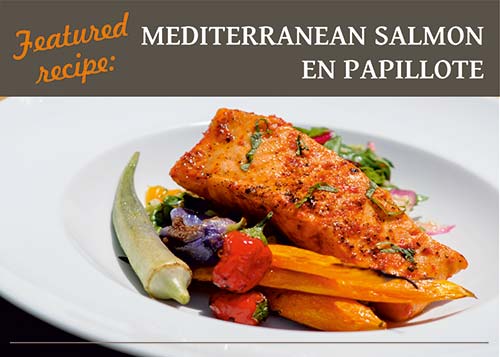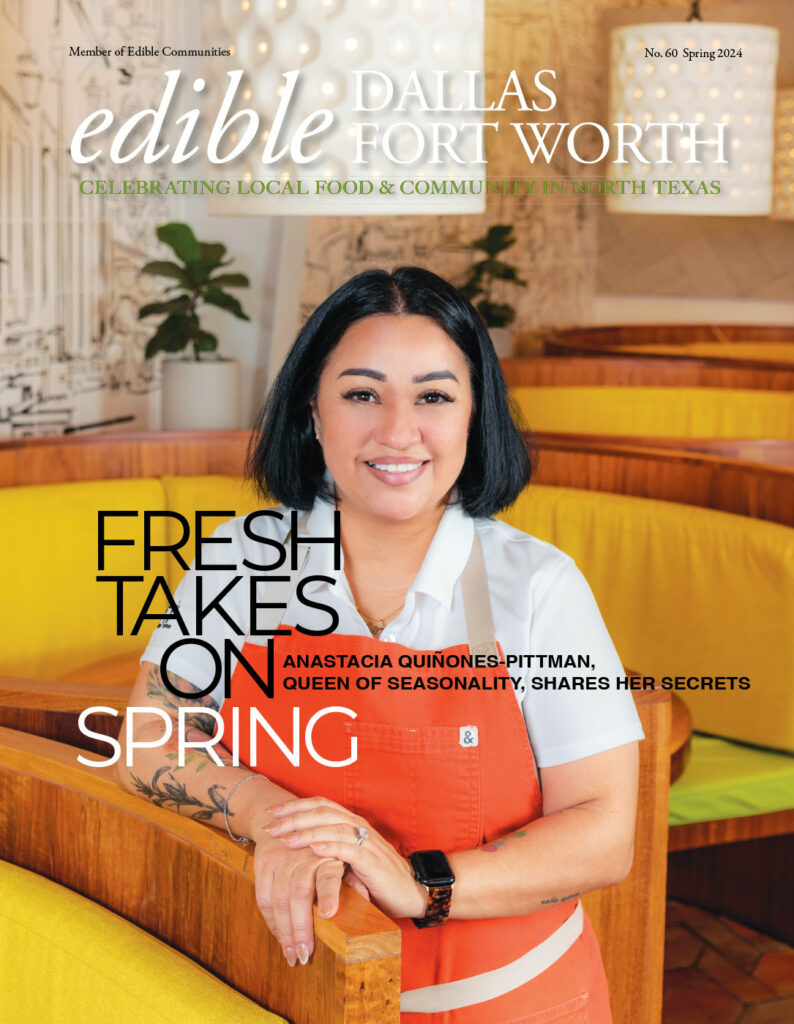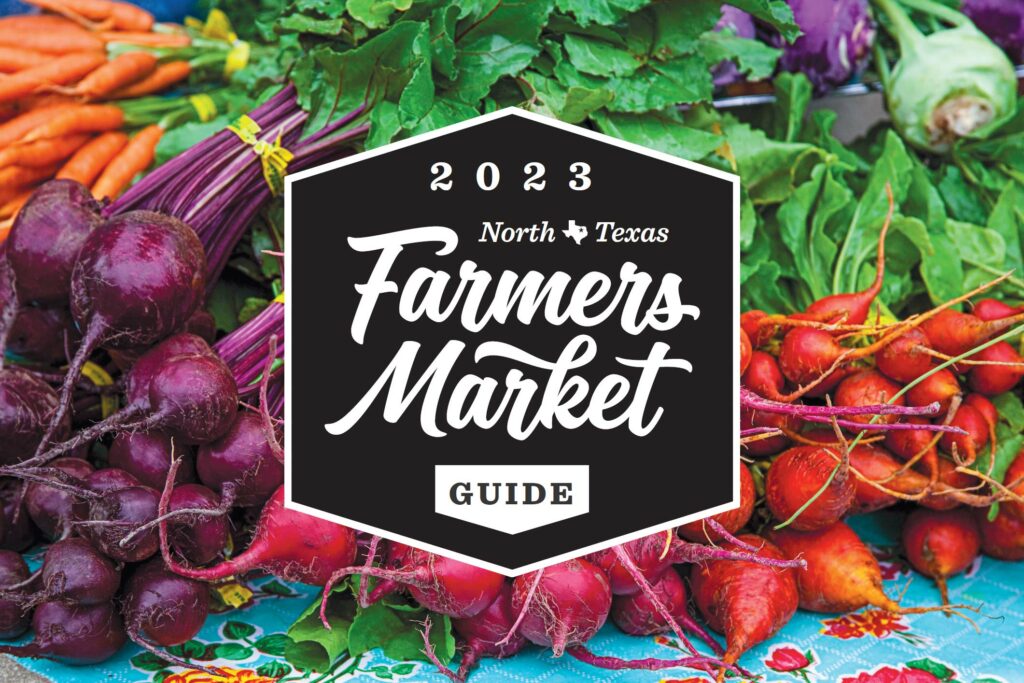Sprouting a Business Model
Photography Teresa Rafidi and Piper Klee-Waddle
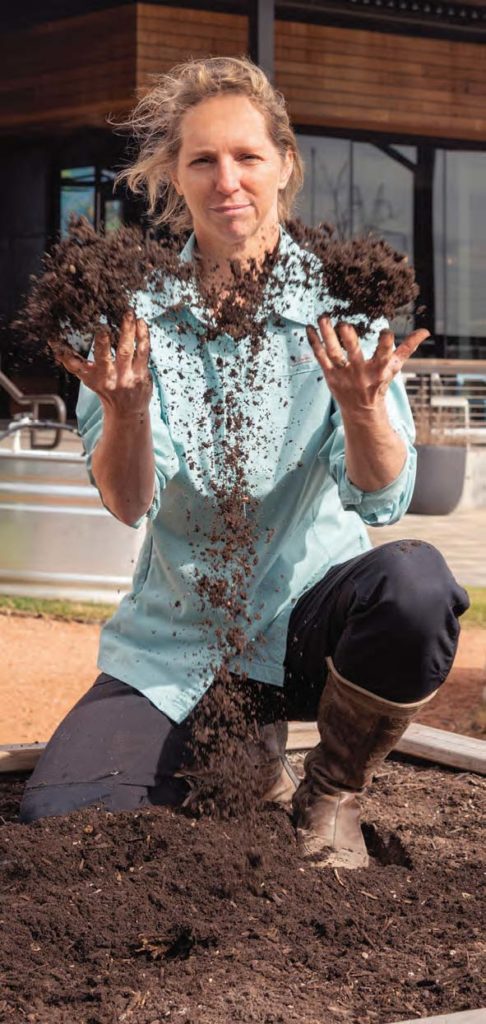
When Piper Klee-Waddle moved to Texas from Colorado, she wanted to connect with as many people in the urban food movement as possible. As a long-time avid gardener, she prioritized meeting and learning from local farmers and producers. Her next step was to build a series of raised beds in the front yard of her home in historic downtown McKinney, taking advantage of the optimal sunlight on her property. There she planted edible vegetation, which germinated from the soil with unbridled purpose, but offered a different kind of allure.
“Living in a nice, well-manicured Texas town, I wasn’t quite sure how it was going to be received, but the neighbors loved it and I started meeting people because I was out front!” Piper says. The impact those raised beds had as conversation starters in her neighborhood inspired her to cultivate something greater.
Piper’s business, Urban Dirt Company, quite literally grew from that front-yard garden. First she helped neighbors start raised kitchen gardens of their own and eventually branched out into commercial gardening designs in nearby downtown McKinney.
Five years later, Urban Dirt has sprouted into one of North Texas’s premier edible garden consulting businesses, serving restaurants, community developments and individual homeowner landscapes in addition to offering educational gardening classes both online and in person.
After Piper was hired to develop a series of raised-bed plots at the restaurant Hook, Line and Sinker in Plano, her budding business took off. Season after season, she’s now blossomed into a “gardener to the chefs.”
“That was my first commercial garden. From there, I grew, one chef at a time, totally from word of mouth,” Piper says.
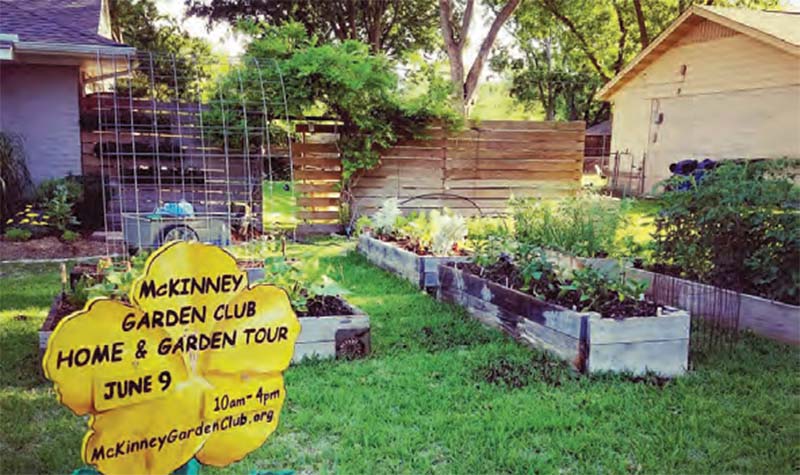
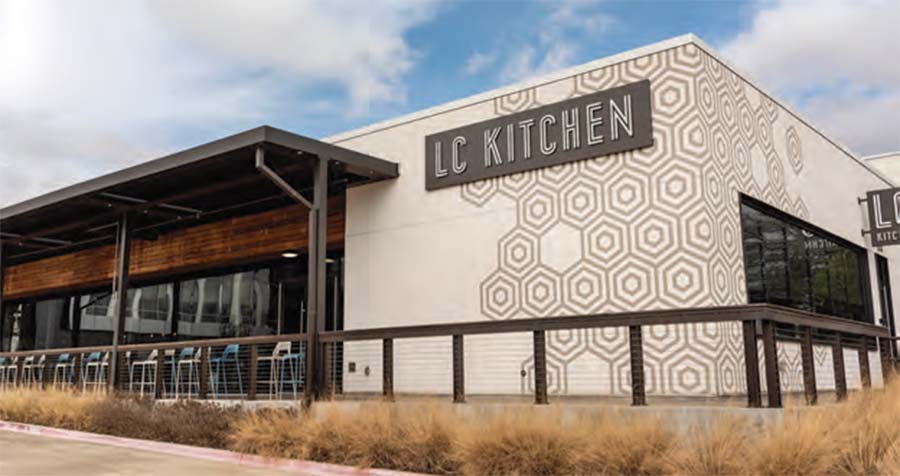
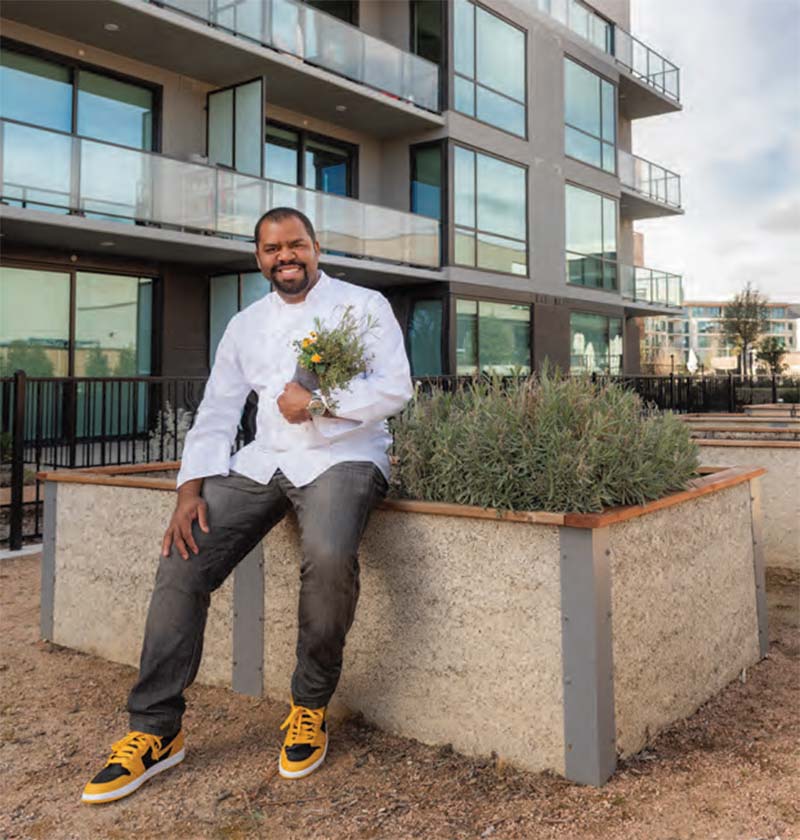
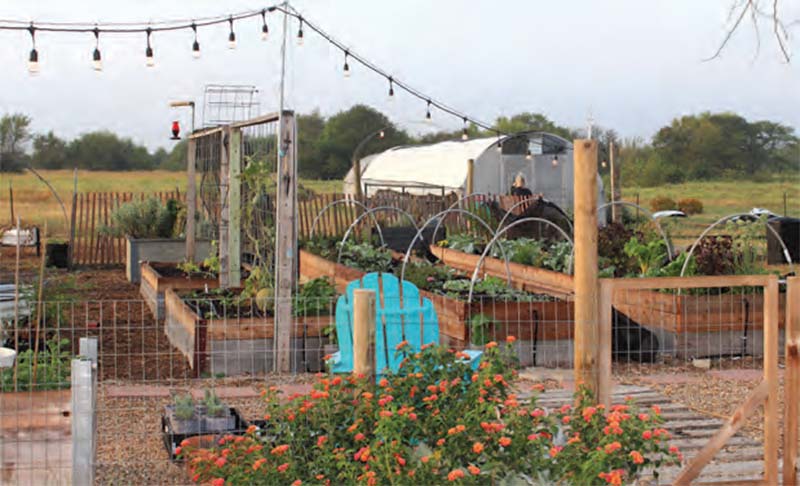
GROWING INTO THE RESTAURANT SCENE
You can find Urban Dirt-sprouted food gardens (some exceeding 20 raised beds!) at the restaurants Rye and Patina Green in McKinney, LC Kitchen in Plano, and Homewood and Meridian in Dallas, as well as at the Thompson and Virgin hotels.
“Our company’s mission is to build culinary gardens to connect chefs with gardening,” Piper says.
She and her team of gardening gurus build four-season-harvest gardens that connect communities with hyper-locally grown ingredients. These gardens help local chefs and their restaurants tell a story with the vegetables, herbs, and edible flowers they produce. While typically not big enough to supply all of a restaurant’s need for produce, the gardens’ innate ability to draw people in, much like Piper’s first front-yard raised beds, serve to inspire—planting a seed of opportunity.
Chefs love the gardens for their potential to supply some of the freshest ingredients possible, foster creativity, aid in discovering different flavor profiles by season, and utilize all edible parts of a plant.
“Everyone should understand, even just a little bit, what happens from when a seed goes into the ground to what ends up on a plate,” Piper says.
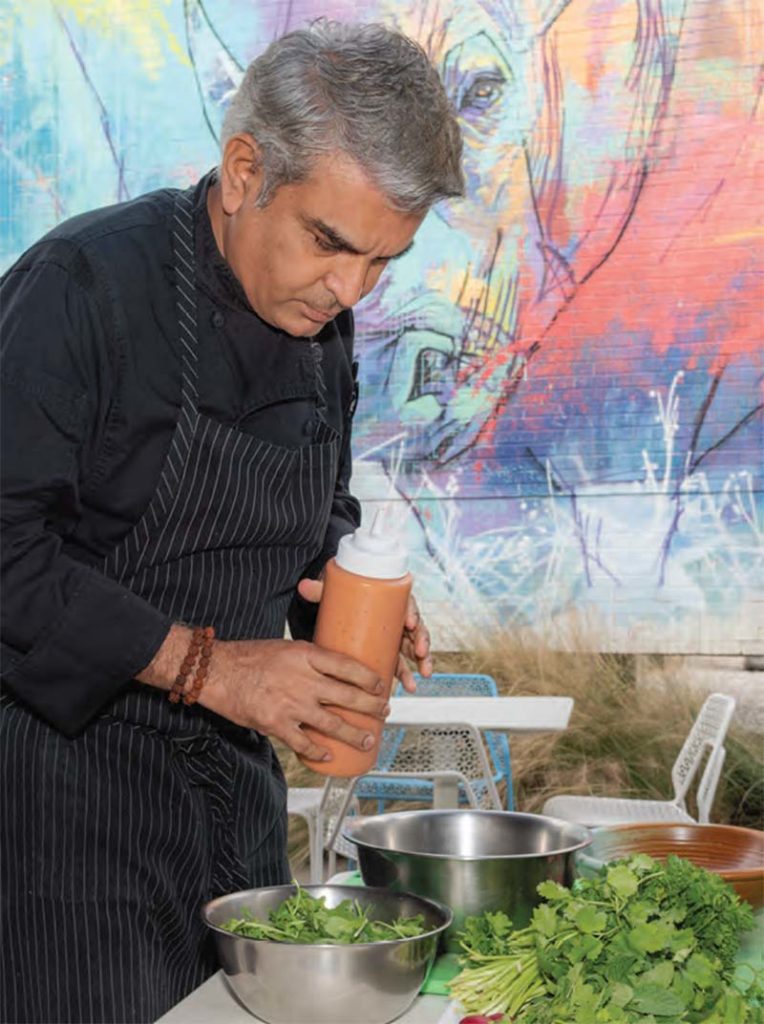
THE CULINARY COCKTAIL
Bar tenders and bar managers might be the most experimental and efficient stewards of their on-site gardens, picking both herbs and edible flowers for their unusual colors and the intense flavor profiles they add to cocktail garnishes and infusions.
While edible flowers are certainly both beautiful and functional, they are not without their own set of challenges. Urban Dirt takes the extra step to ensure that the plants enhance taste but are also the highest quality for the consumer.
“It’s hard to find organic flowers, [but it’s] important because they are for a culinary use. We have to babysit those plants, cutting all the flowers off, growing them out and [always eliminating] any synthetic chemicals,” Piper says.
Sweet and spicey dianthus, citrusy Tiny Gem marigolds, and peppery nasturtiums are just a few of the many edible flowers you can find elevating both food and drink at Urban Dirt-supported gardens.
“We let everything bolt: the arugula, the basil, cilantro. We usually can’t grow enough for daily use on a full menu, production-wise, so we grow them for the flowers,” Piper explains.
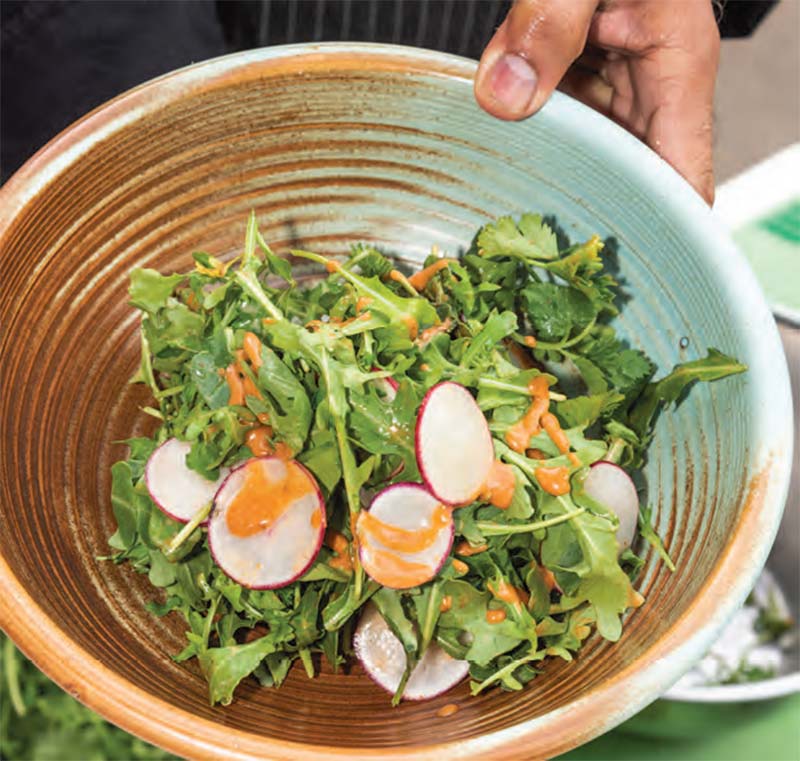
LC Kitchen Basil Pesto
BUILDING COMMUNITY
Real estate developers and property managers love the gardens, too.
“Something that we don’t really always talk about is these gardens are PR pieces. Some of these gardens are here because they make property managers appear forward-thinking and interesting,” Piper says. And she’s perfectly fine with the opportunity to inspire other would-be gardeners.
“Tours always include a walk past the gardens, which is beneficial for the property owners, their prospective tenants, as well as the restaurant,” she says.
While she’s fingernail-deep in her craft she gladly pauses to offer horticultural insight.
“I do take every opportunity, if somebody walks past the garden, I’ll spend 15 to 20 minutes explaining what we’re doing. They might not realize that this is a turnip and that you can eat both the tops and the bottoms, or that this chef is using the mint here for his lemonade. They’re connecting the dots as they walk in to get their lunch. It’s super cool!” she explains.
And she doesn’t tidy it up. “This is a real-life working garden. It’s like being on a mini-farm. Sometimes the plants don’t look good, food crops expire quickly, flowers are short-lived, and there’s pests and bees. These are the facts of life. Deal with it!” she jokes.
CHEFS DIG GARDENS
Vijay Sadhu, executive chef at LC Kitchen, is ecstatic about how their campus’s nine-bed garden adds to his fresh, ever-changing seasonal menu and enhances dishes for diners.
“Basil for example, we used to buy from our supplier, and I compared that with what we are growing on-site and the difference is night and day,” Sadhu says. “The fragrance is incredible as well. If I go to a supermarket, I just can’t get the same smell as what I get from the herbs here,” he adds.
But the value that the garden brings is rooted in more than just what it adds to the plate.
“What I see here, it’s different. It even motivates my staff. There’s so much passion, so much love involved with the garden” says Sadhu. He loves that “when people come to our garden, they look, they touch, they feel, they smell.”
Piper and her team’s largest project is the 23-bed culinary garden at the new Village’s restaurant Meridian, run by acclaimed chef Junior Borges. ‘One of the most important things for me is the ability to go to the garden every day,’ says Borges, who is very involved in what goes into the soil and is inspired by the potential to create flavors that stand out.
“We decide with Piper everything that’s planted, and so, naturally, we get excited about everything that grows. That said, I particularly love the coriander plants, since we use a lot of coriander on the moqueca — the Brazilian seafood stew that’s one of our signature dishes. I also get really excited about the various basils, mustard, shisos, mint, peppers and nasturtiums,” Borges says.
“Guests often tell me how that herb tastes “so fresh” or that “the garnish really elevated the dish’ because of how bright and fresh something might be,” he adds.
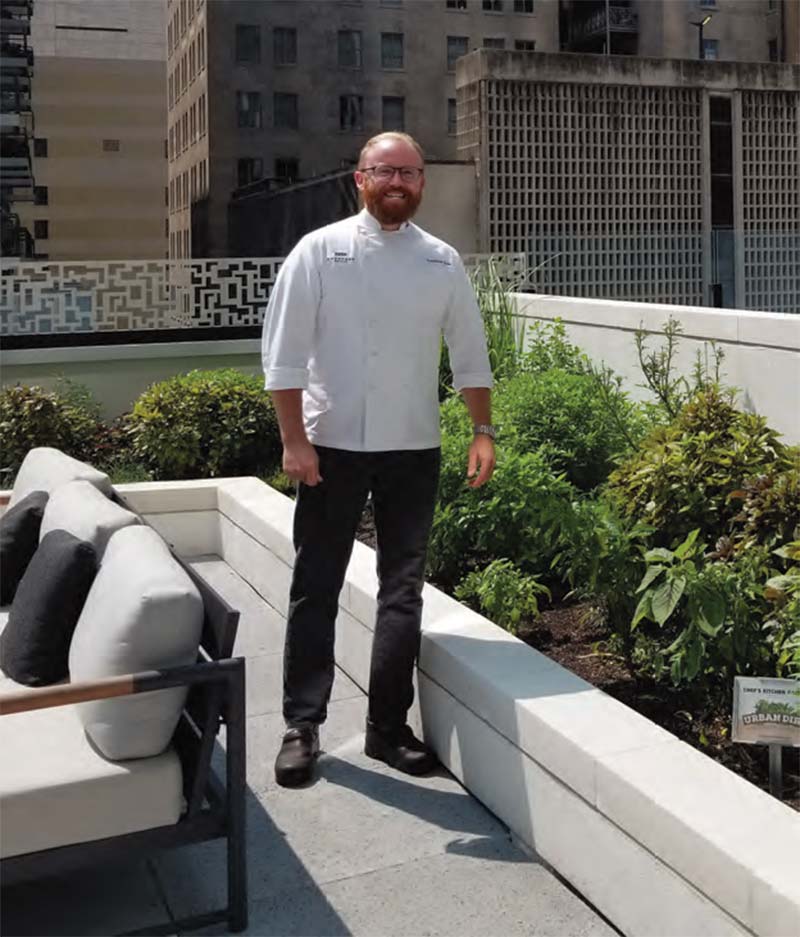
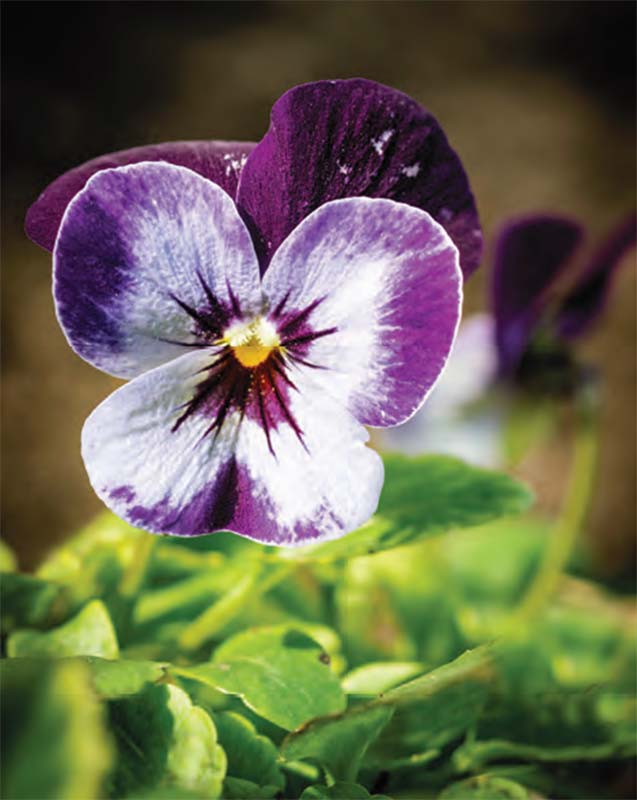
GROWING NEW GARDENERS
Piper’s gardens also serve to reinforce that visitors can incorporate some of the same principals into their home landscapes and that edible and highly ornamental potager gardens are becoming more in vogue for a reason.
“There’s a wow factor,” Piper says. She’s seen epiphanies as people realize, “If they can put these gardens in front of million-dollar buildings, then I can do this at my house as well!” she says.
“All gardens have a placard with a QR code (that goes directly to our website, UrbanDirtCompany.com) were folks can learn more about the gardens themselves, Urban Dirt Co. and sign up for gardening classes or hire us for a garden installation.”
The next step for Piper and her husband Darrin Waddle is a pop-up retail nursery in downtown Sherman where they will offer most of the plants that they grow in their commercial food-scapes in addition to holding affordable hands-on gardening classes where you can learn the skills to cultivate your own edible landscape.

WHAT PIPER’S PLANTING FOR SPRING
“We will be planting a lot of kitchen herbs like dill, Italian oregano and lemon thyme, and bronze fennel in the chef gardens. The bar programs will get Mexican Mint marigolds, Lemon Drop Spilanthes (toothache plant), nasturtiums and Thai basil all for the edible flowers. Many of the chef gardens will get Sungold tomatoes and English cucumbers in April and May.”
“Homeowners in March can plant lots of leafy greens like lettuce, kale, arugula, radishes for a quick-growing salad garden. Make sure they get quality soil first and try to put everything on a drip system with a timer. This makes home gardening much more pleasant and successful.”
Daniel Cunningham, Horticulturist with Texas A&M AgriLife's Water University program. His primary focus is a holistic approach to landscaping and food production systems. Cunningham specializes in Texas native plants and trees, vegetable gardening, edible landscaping, rainwater harvesting and is passionate about utilizing landscapes as habitat for benecial wildlife. For more gardening advice om Daniel, tune in to NBC DFW (Channel 5) on Sunday mornings or ask @TxPlantGuy on Facebook, Twitter or Instagram.
-
Daniel Cunninghamhttps://www.edibledfw.com/author/dcunningham/
-
Daniel Cunninghamhttps://www.edibledfw.com/author/dcunningham/
-
Daniel Cunninghamhttps://www.edibledfw.com/author/dcunningham/
-
Daniel Cunninghamhttps://www.edibledfw.com/author/dcunningham/


